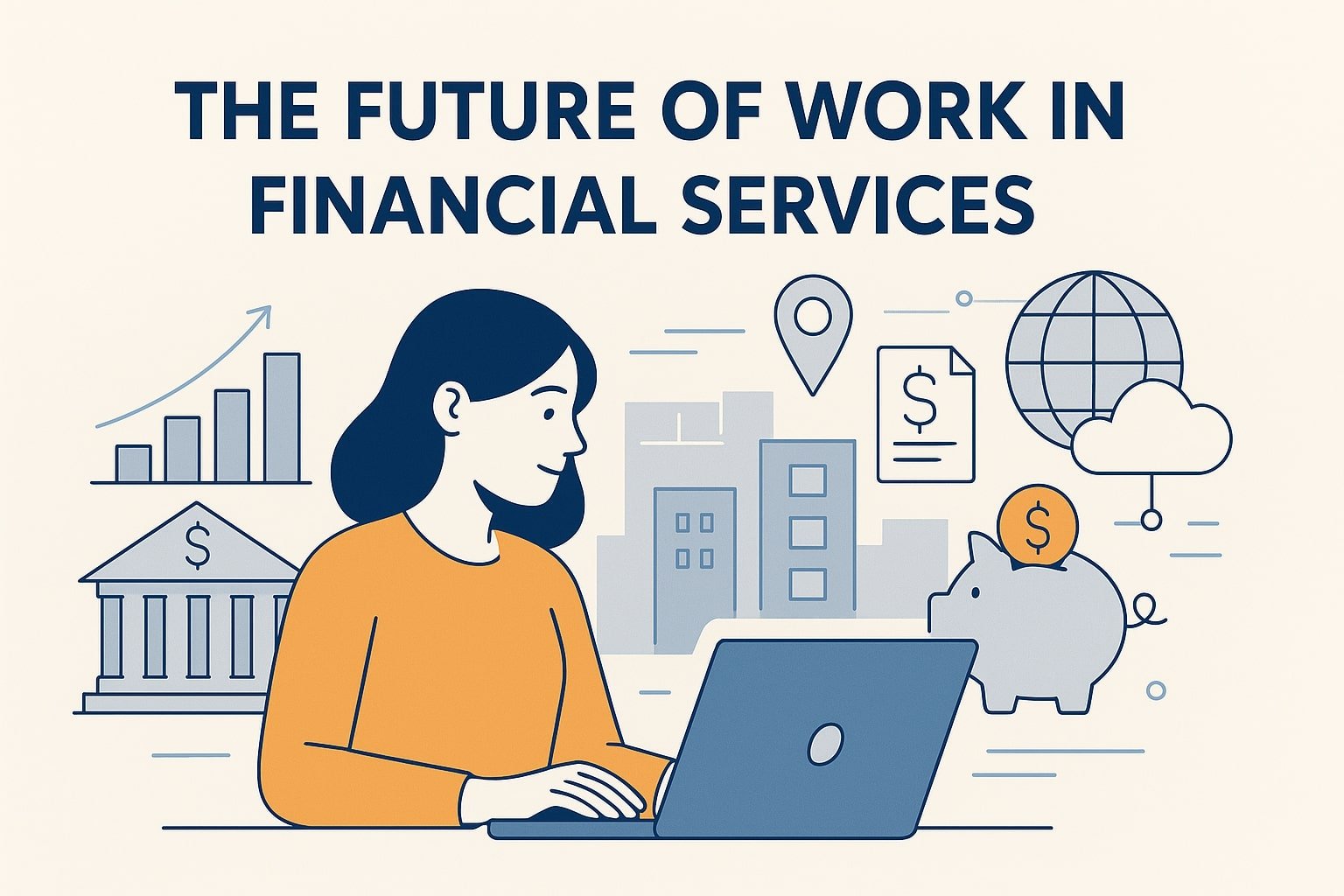The Future of Work in Financial Services
Introduction
The world of financial services is transforming faster than ever. Remote work, hybrid schedules, digital workflows, and evolving employee expectations are dramatically reshaping the future of work. As banks, insurance firms, investment houses, and fintech companies adapt to these shifts, they must develop proactive talent strategies to remain competitive and resilient. This blog explores the key trends shaping the future of work in financial services and what employers must do to future-proof their workforce.
Key Trends Reshaping Financial Workplaces
Hybrid and Flexible Work Models
Hybrid work is no longer a temporary solution — it’s here to stay. BFSI leaders are redesigning processes, communication, and team structures to support partial or full remote work while preserving collaboration and compliance.
Action point: Develop hybrid-friendly roles and invest in remote leadership capabilities.
Greater Automation and AI
Financial services have been at the forefront of AI adoption for fraud detection, loan underwriting, and compliance. The same AI shift is now extending into recruiting, onboarding, and even performance management, enabling better efficiency and data-driven decision-making.
Action point: Upskill existing employees on working alongside AI-powered tools.
Skills Over Roles
Traditional role-based structures are giving way to skill-based hiring. Organizations are mapping key competencies — like cybersecurity, ESG investing, or data storytelling — and then flexibly deploying talent across functions as market needs evolve.
Action point: Audit your workforce skills to create adaptable career pathways.
Employee Well-Being as a Priority
Burnout and mental health challenges have affected financial professionals deeply in the post-pandemic era. Future-oriented employers are investing in wellness programs, psychological safety, and employee assistance frameworks to sustain productivity.
Action point: Integrate mental health and well-being KPIs into your HR dashboards.
Regulatory & Compliance Implications
Remote work, cross-border collaboration, and cloud-based processes have added new layers of regulatory complexity. Data privacy, cybersecurity, and labor law compliance must be updated to match the new future of work.
Action point: Partner with compliance specialists to review hybrid and digital labor policies.
Conclusion
The financial services sector is at a crossroads. Organizations that embrace the future of work — with technology, empathy, and a skills-first mindset — will attract the best talent, deliver superior customer experiences, and build long-term resilience.






